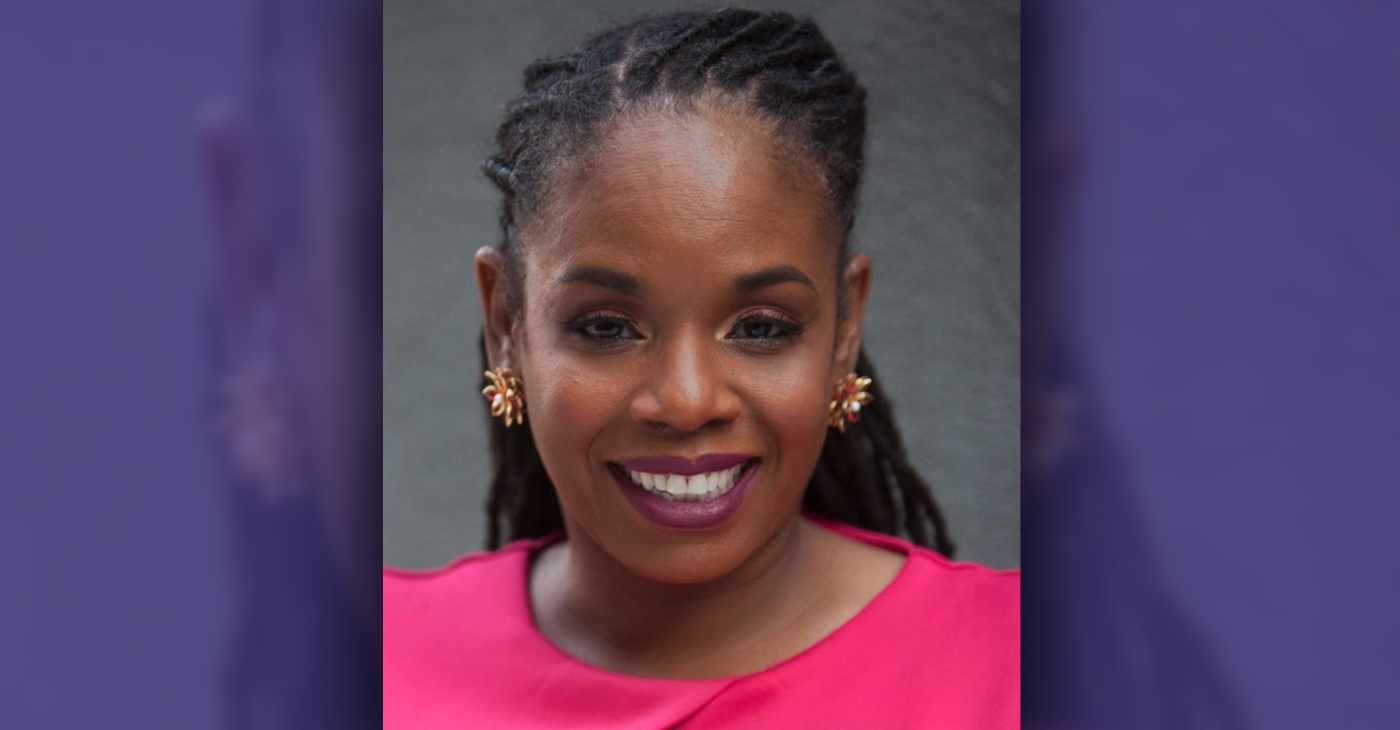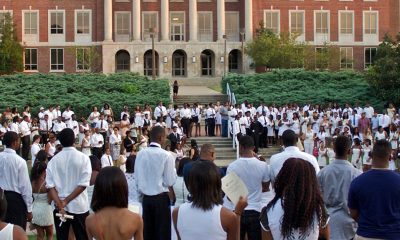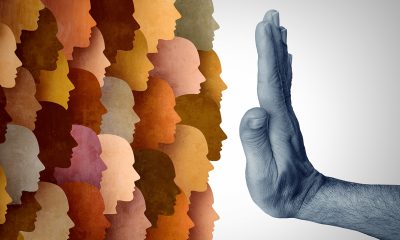Black History
OPINION: Black Women Will Suffer Harshest Consequences After the Overturn of Roe
The impact of new abortion bans and restrictions will be felt most acutely by poor and working-class Black women — Black women are significantly more likely to live in poverty compared to white women. For these women, the overturning of Roe won’t mean that abortions will end; it will mean that access to critical, potentially life-saving healthcare will move hundreds of miles out of reach. It will mean time off of work (likely unpaid) and travel and childcare costs — expenses that may not be possible for women living paycheck to paycheck, struggling to simply put meals on the table.

By Glynda Carr
The Supreme Court just dealt a devastating blow to reproductive rights. With its decision in Dobbs v. Jackson, five Republican-appointed Justices on the U.S. Supreme Court swept away half a century of progress and eviscerated women’s rights and equality. After last month’s leaked opinion, we knew this moment could come, but that doesn’t make the news any easier to digest.
For Black women in this country, the decision is especially devastating. Thirteen percent of American women are Black, but 38% of people receiving abortion care are Black. Abortion is necessary healthcare — and a lack of access can quite literally mean life or death for many Black women. This is especially true for Black women who have lower incomes, live in rural areas, and do not have access to health care because of systemic racism and discrimination.
According to Centers for Disease Control and Prevention data, Black women are nearly three times more likely to die during childbirth than white women and are more likely to face maternal health issues. With new abortion restrictions and bans, these health outcomes are expected to get even worse: a 2021 Duke University study estimated the potential death toll following a total abortion ban and found a 33% increase in Black women who died due to pregnancy-related complications.
The states that are already moving to ban abortion are among those with the largest Black populations in the country. Consider Mississippi, the state with the highest percentage of Black residents in the nation, and one of the 13 states with a “trigger law” that ensured the decision would result in a near-immediate ban on abortion access. Three other states with the highest proportion of Black residents — Tennessee, Louisiana, and Arkansas — have these trigger laws in place, and many other states, especially in the South, are moving to severely restrict or outright ban abortion.
The impact of new abortion bans and restrictions will be felt most acutely by poor and working-class Black women — Black women are significantly more likely to live in poverty compared to white women. For these women, the overturning of Roe won’t mean that abortions will end; it will mean that access to critical, potentially life-saving healthcare will move hundreds of miles out of reach. It will mean time off of work (likely unpaid) and travel and childcare costs — expenses that may not be possible for women living paycheck to paycheck, struggling to simply put meals on the table.
At a time like this, when daughters suddenly have fewer rights than their mothers and grandmothers, it is challenging to imagine a way forward. But the answer is to do everything we can to restore our rights and ensure every woman has access to the healthcare they need and deserve, a right afforded to them under our nation’s Constitution.
To do that, we need to elect and elevate more Black women. Black women have been at the forefront of the fight to protect and expand reproductive rights — from members of Congress like Reps. Cori Bush, Ayanna Pressley, and Lauren Underwood, to our first Black woman Vice President Kamala Harris, to soon-to-be-seated Supreme Court Justice Ketanji Brown Jackson.
We must elect Stacey Abrams to lead the state of Georgia — one of the states that is now positioned to severely restrict — or overturn the right to access abortion care under the leadership of their current governor, Brian Kemp.
And finally, we need to not only encourage, but throw our unwavering support behind more Black women from all across the country to run for office — women who personally understand the deep impact that a lack of healthcare and abortion restrictions have on communities that have lacked fair representation for far too long.
Today and every day, I stand with my partners and allies ready to continue the critical fight for access to affordable, safe, legal abortions for all women, no matter where they live, how they identify, or how much money they have. We will not back down.
Glynda Carr is president and CEO of Higher Heights for America, the only national organization providing Black women with a political home exclusively dedicated to harnessing their power to expand Black women’s elected representation and voting participation, and advance progressive policies.
The views expressed in this article are the writer’s own.
Activism
Oakland Post: Week of April 24 – 30, 2024
The printed Weekly Edition of the Oakland Post: Week of April 24 – 30, 2024

To enlarge your view of this issue, use the slider, magnifying glass icon or full page icon in the lower right corner of the browser window. ![]()
Activism
Oakland Post: Week of April 17 – 23, 2024
The printed Weekly Edition of the Oakland Post: Week of April 17 – 23, 2024

To enlarge your view of this issue, use the slider, magnifying glass icon or full page icon in the lower right corner of the browser window. ![]()
Black History
Matthew Henson: Explorer Extraordinaire
Matthew Henson, a trailblazing explorer who overcame countless obstacles to leave an incredible mark on history. Born on August 8, 1866, in Charles County, Maryland, his journey is a testament to the power of determination and the spirit of adventure.

By Tamara Shiloh
Matthew Henson, a trailblazing explorer who overcame countless obstacles to leave an incredible mark on history. Born on August 8, 1866, in Charles County, Maryland, his journey is a testament to the power of determination and the spirit of adventure.
Henson’s life began amidst the backdrop of post-Civil War America, where opportunities for African Americans were scarce. From a young age, he possessed an insatiable curiosity about the world beyond his small town. At the age of 12, he embarked on a journey that would change the course of his life forever when he joined a merchant ship as a cabin boy.
His most famous expedition was his journey to the Arctic with renowned explorer Robert E. Peary. In 1887, Henson joined Peary’s crew as a seaman and quickly proved himself to be invaluable with his skills as a navigator and craftsman. Over the course of several expeditions, Matthew endured extreme cold, treacherous terrain, and grueling conditions as he and Peary sought to reach the elusive North Pole.
In 1908–09, Peary set out on his eighth attempt to reach the North Pole. It was a big expedition, with Peary planning to leave supplies along the way. When he and Henson boarded their ship, the Roosevelt, leaving Greenland on August 18, 1909, they were joined by a large group. This included 22 Inuit men, 17 Inuit women, 10 children, 246 dogs, 70 tons of whale meat, blubber from 50 walruses, hunting gear, and tons of coal.
In February, Henson and Peary left their anchored ship at Ellesmere Island’s Cape Sheridan, along with the Inuit men and 130 dogs. They worked together to set up a trail and supplies along the way to the Pole.
Peary picked Henson and four Inuit people to join him in the final push to the Pole. However, before they reached their destination, Peary couldn’t walk anymore and had to ride in a dog sled. He sent Henson ahead to scout the way. In a later interview with a newspaper, Henson recalled being in the lead and realizing they had gone too far. The group turned back, and Henson noticed his footprints helped guide them to their destination. At that location, Henson planted the American flag.
Henson’s legacy extends far beyond his expeditions to the Arctic. He shattered racial barriers in the world of exploration and inspired countless individuals, regardless of race, to dream big and pursue their passions. In 1937, he was finally recognized for his achievements when he was inducted into The Explorers Club, an organization dedicated to promoting scientific exploration and field research.
Matthew Henson died in the Bronx, New York, on March 9, 1955, at the age of 88.
-

 Activism4 weeks ago
Activism4 weeks agoOakland Post: Week of March 27 – April 2, 2024
-

 #NNPA BlackPress4 weeks ago
#NNPA BlackPress4 weeks agoBeloved Actor and Activist Louis Cameron Gossett Jr. Dies at 87
-

 Community1 week ago
Community1 week agoFinancial Assistance Bill for Descendants of Enslaved Persons to Help Them Purchase, Own, or Maintain a Home
-

 Activism3 weeks ago
Activism3 weeks agoOakland Post: Week of April 3 – 6, 2024
-

 Business2 weeks ago
Business2 weeks agoV.P. Kamala Harris: Americans With Criminal Records Will Soon Be Eligible for SBA Loans
-

 Activism2 weeks ago
Activism2 weeks agoOakland Post: Week of April 10 – 16, 2024
-

 Community2 weeks ago
Community2 weeks agoAG Bonta Says Oakland School Leaders Should Comply with State Laws to Avoid ‘Disparate Harm’ When Closing or Merging Schools
-

 Community1 week ago
Community1 week agoOakland WNBA Player to be Inducted Into Hall of Fame























































